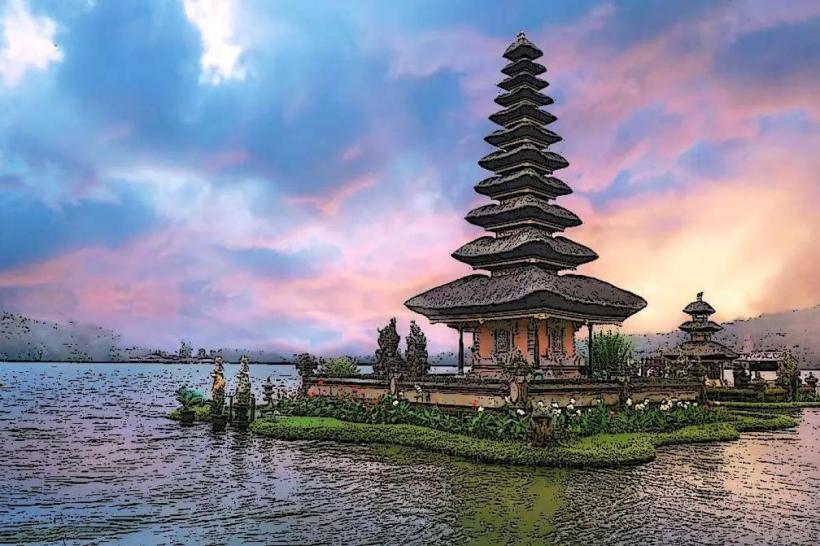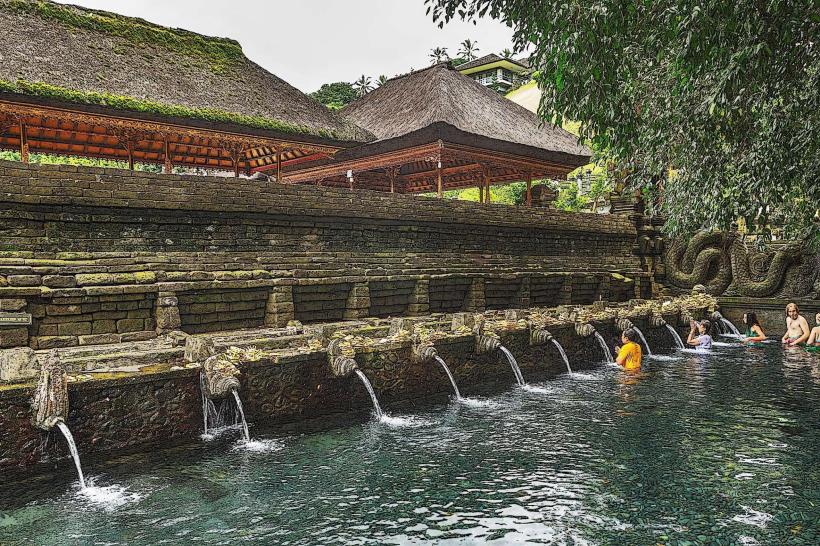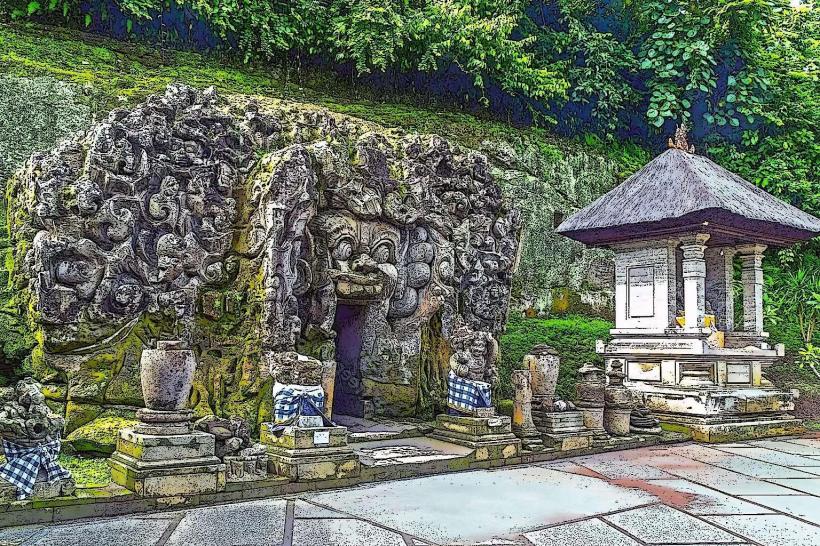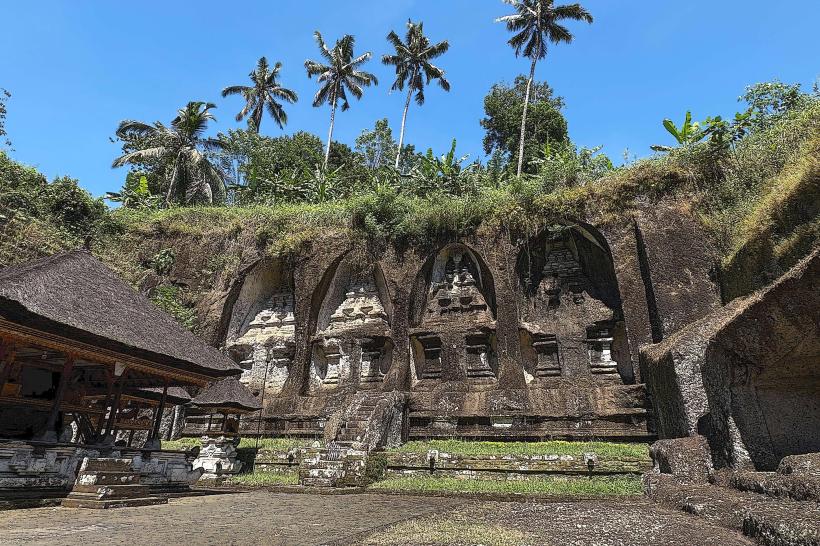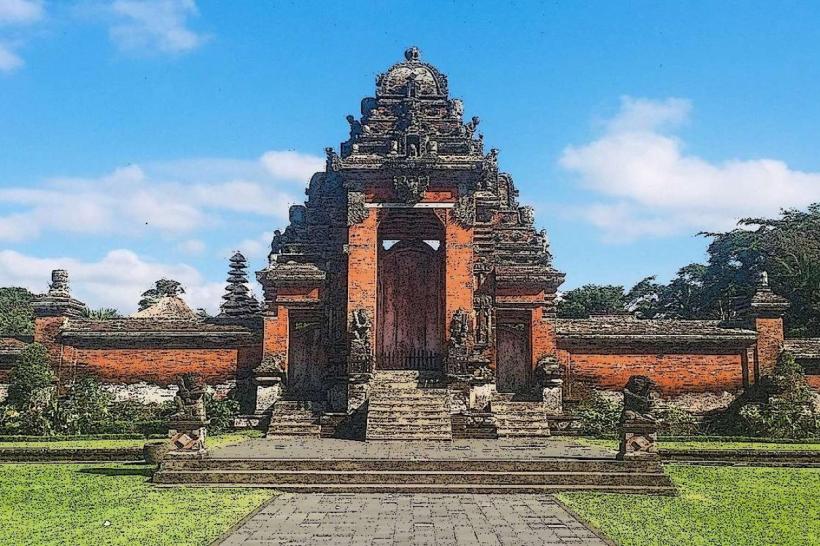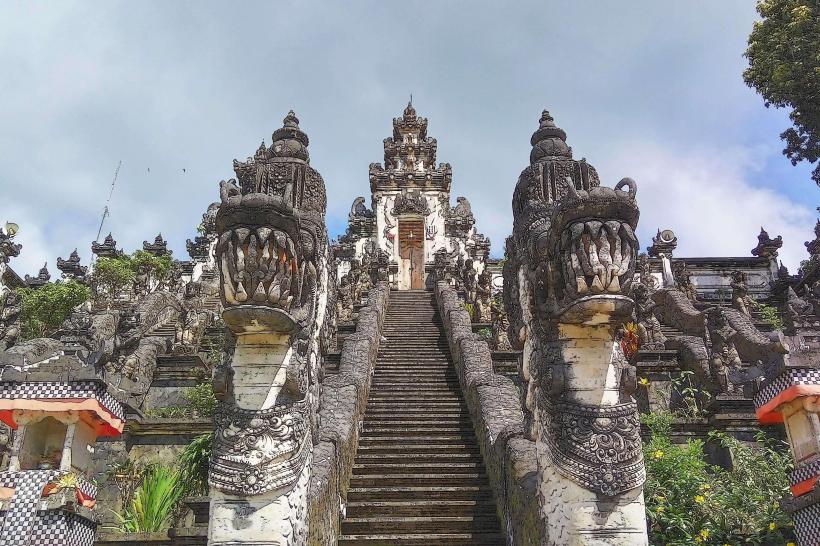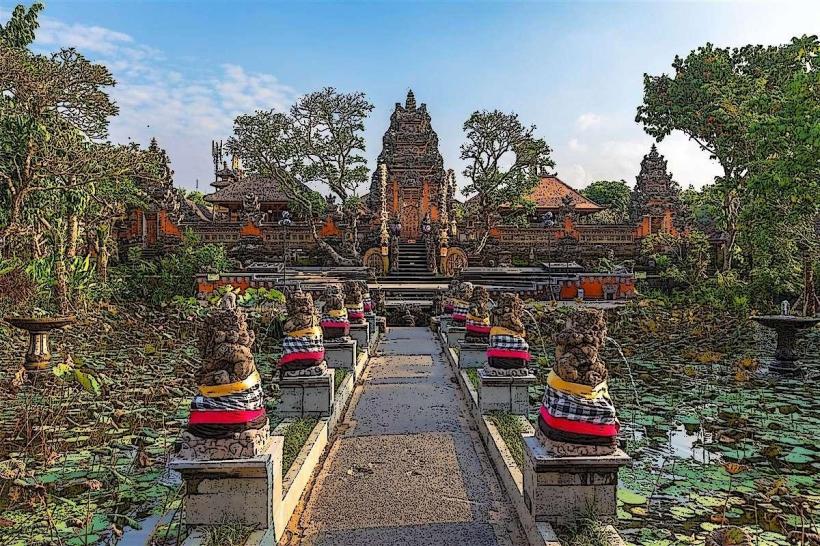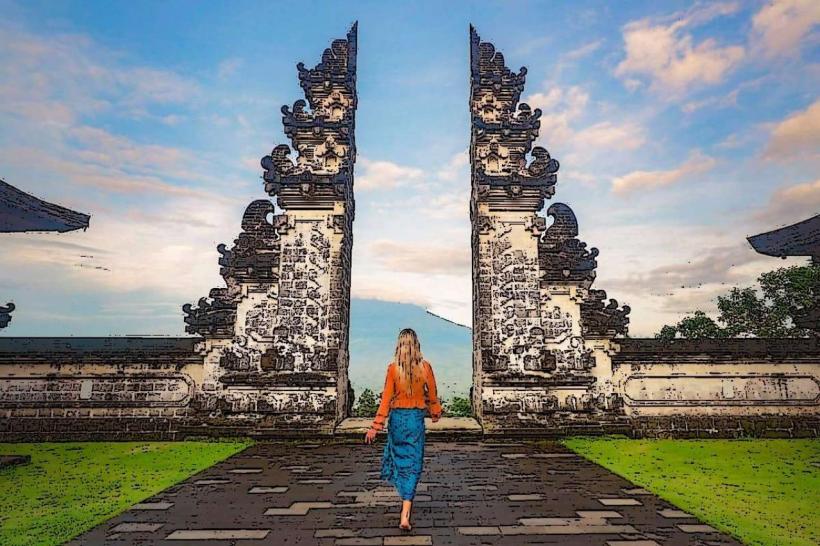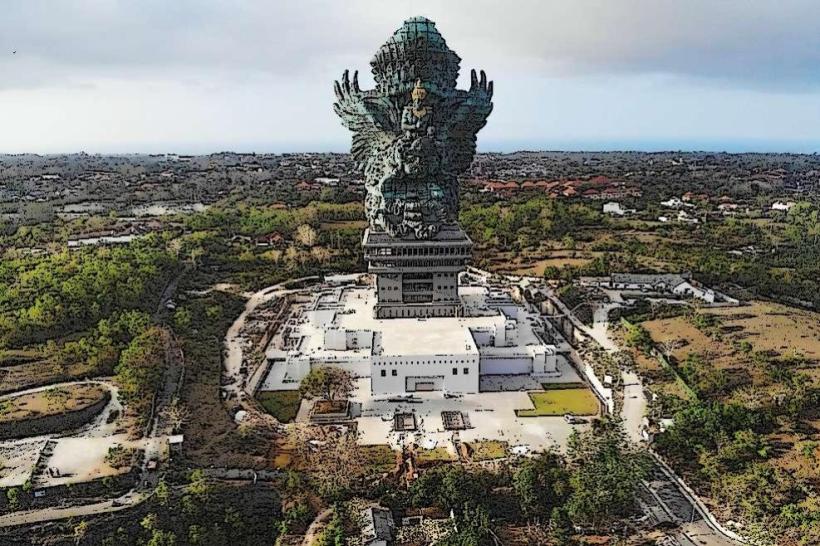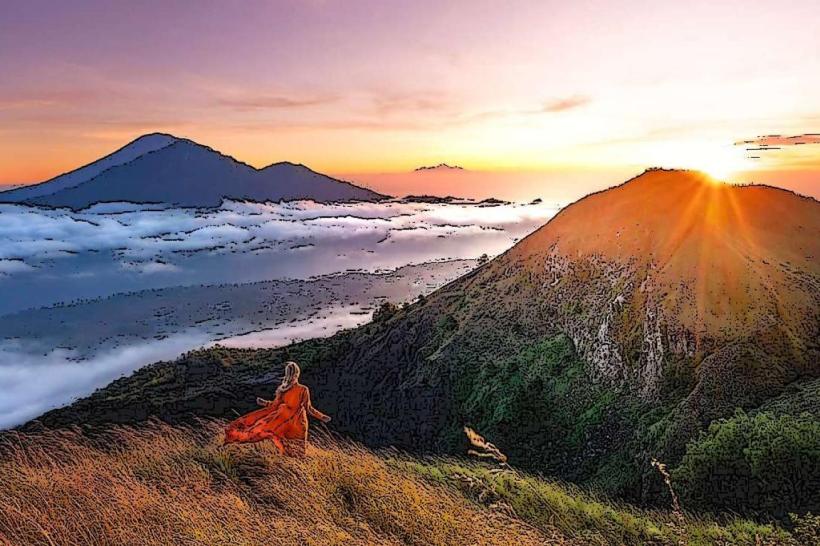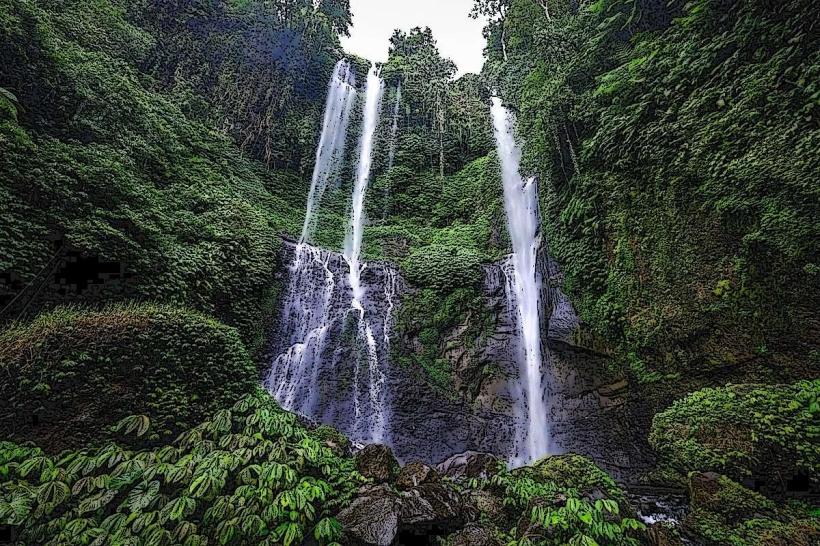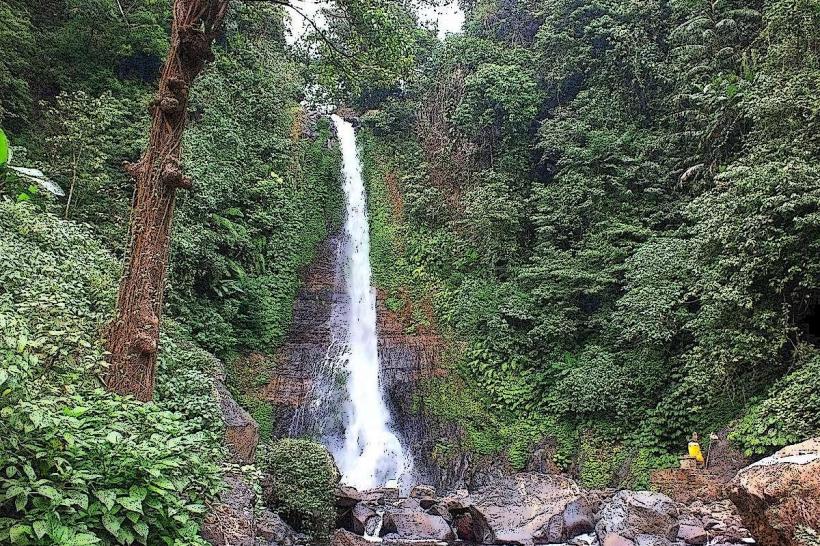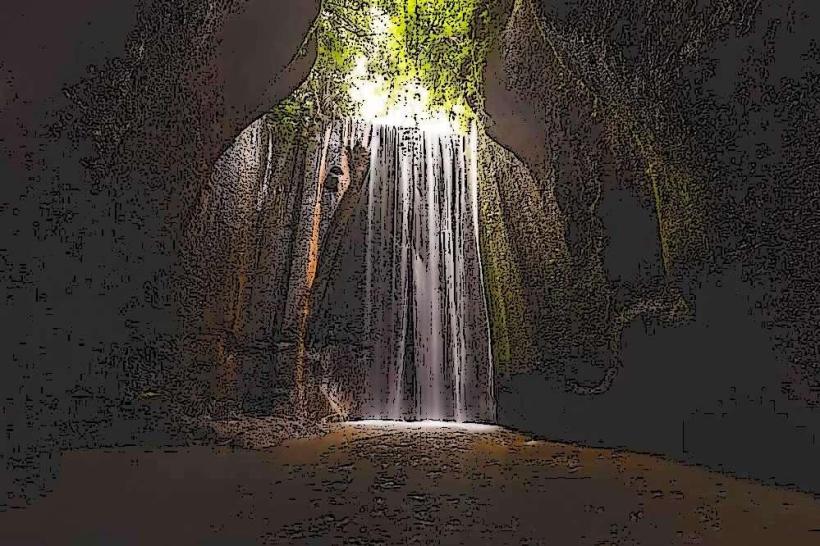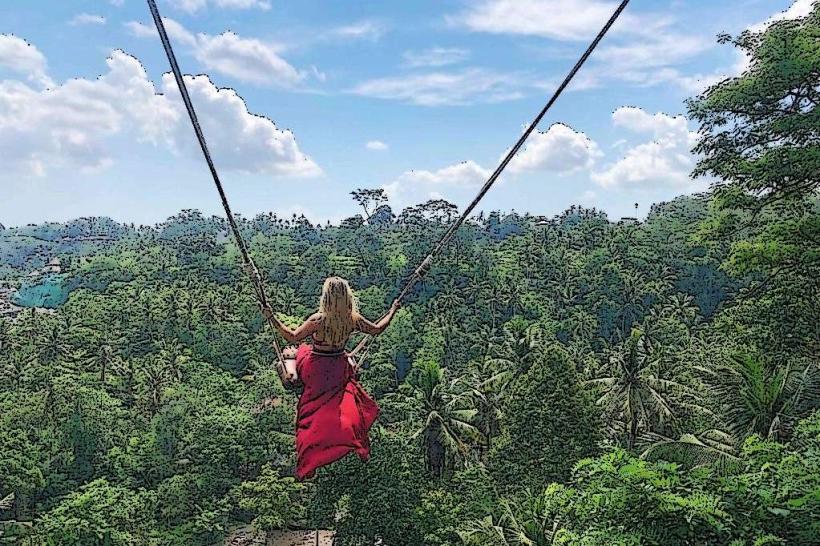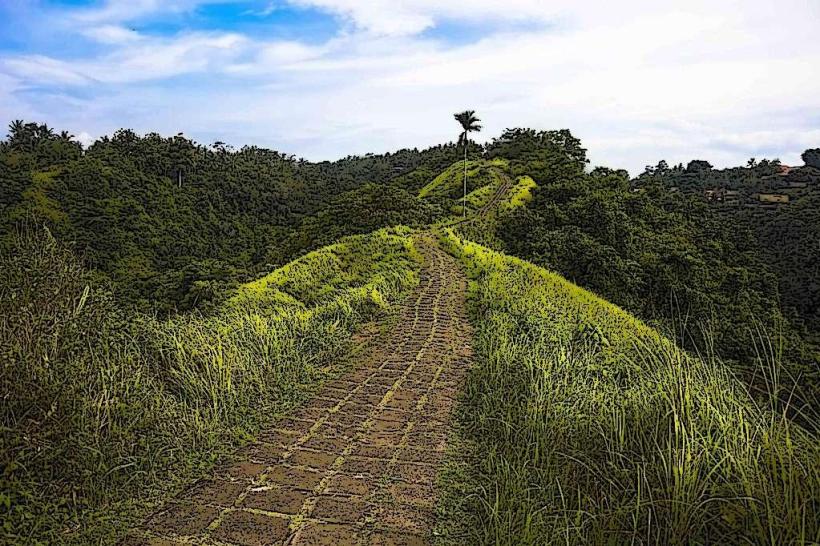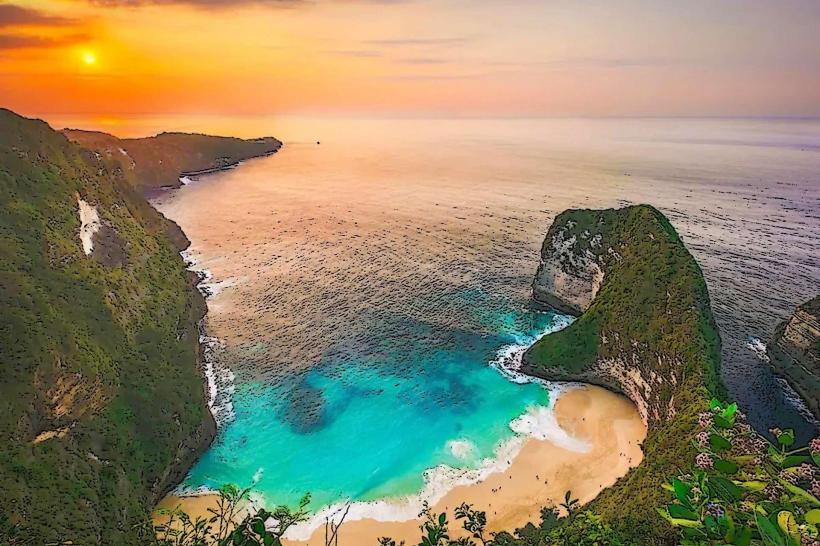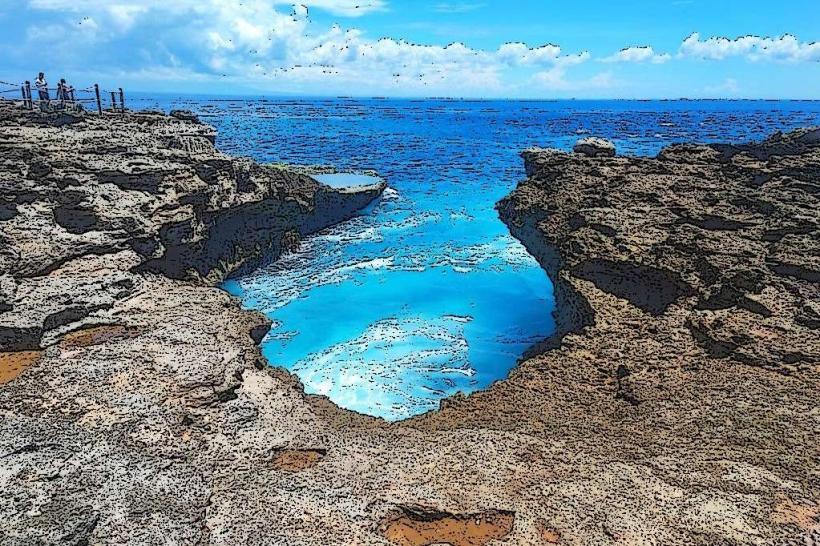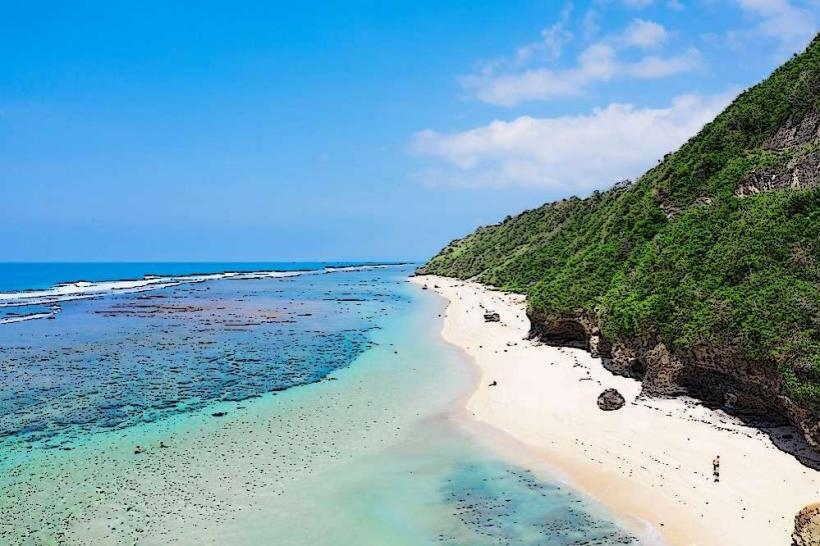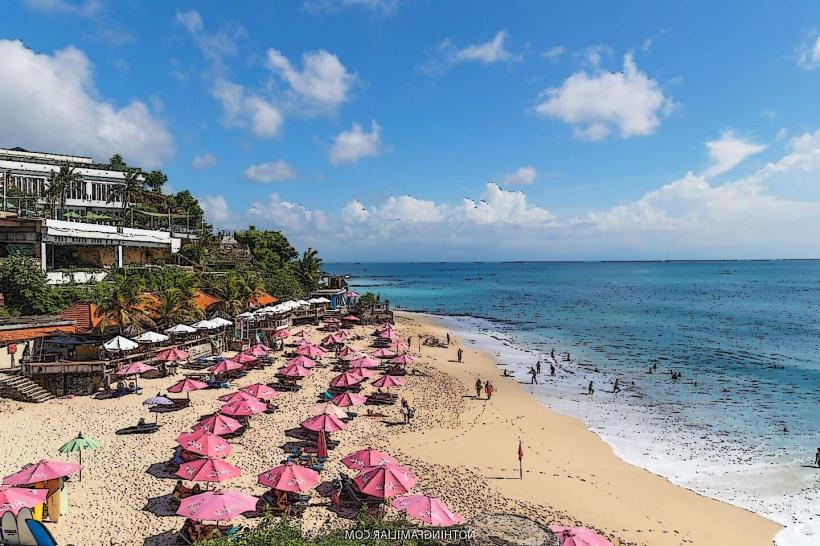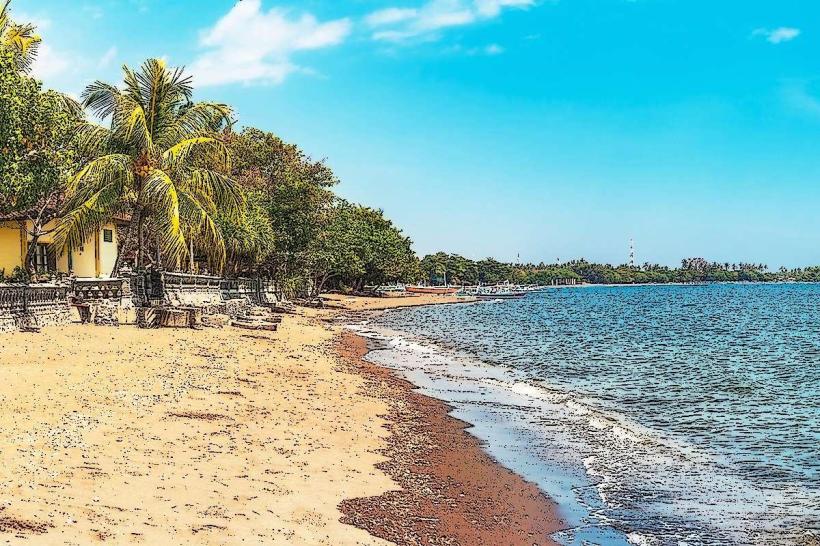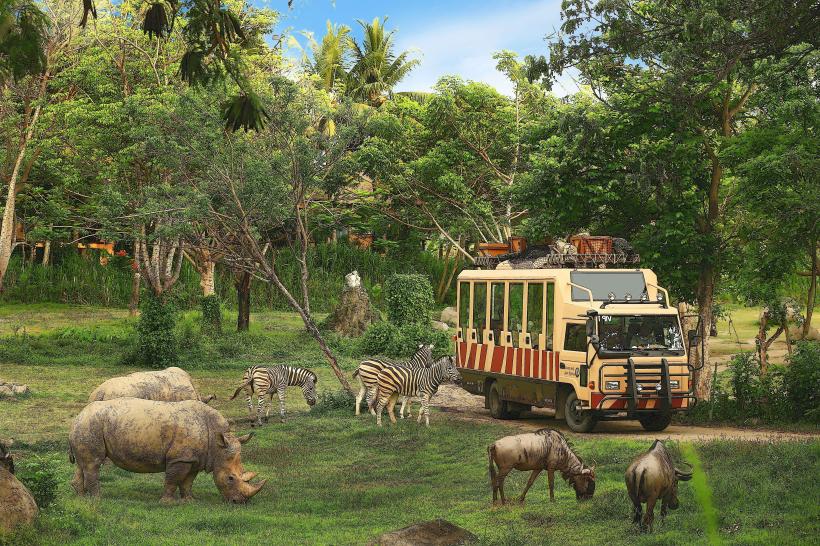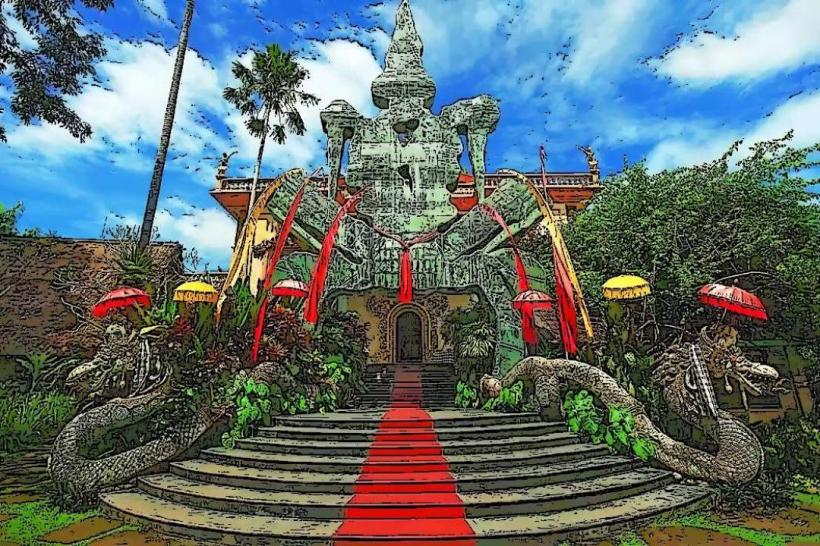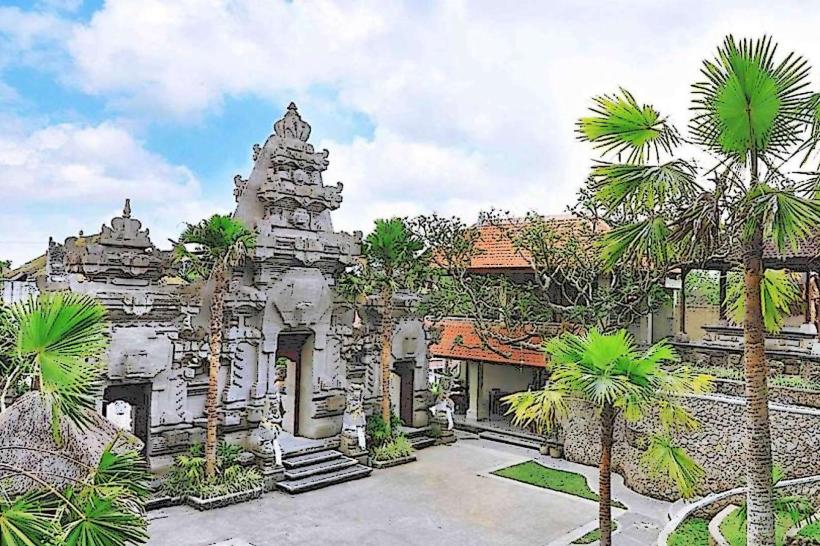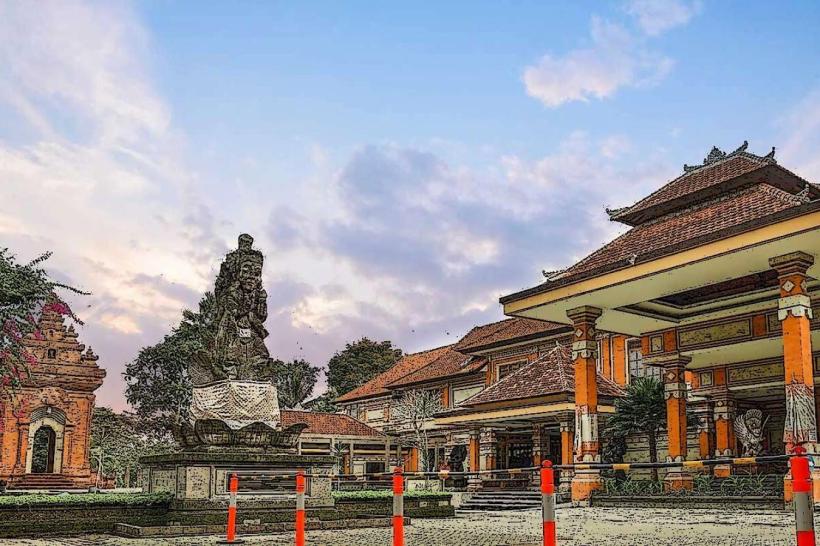Information
Landmark: Jatiluwih Rice TerracesCity: Bali
Country: Indonesia
Continent: Asia
Jatiluwih Rice Terraces, Bali, Indonesia, Asia
Jatiluwih Rice Terraces – In Detail
Location: Jatiluwih Village, Penebel District, Tabanan Regency, Central Bali
Altitude: Approximately 700 to 1,100 meters above sea level
Area: Spanning over 600 hectares of terraced rice fields, making it one of the largest and most expansive rice terrace landscapes on Bali
Historical and Cultural Significance
Subak System:
Jatiluwih is renowned for its exemplary implementation of the traditional Subak irrigation system, a cooperative water management system developed by Balinese farmers over centuries. This system is a cornerstone of Balinese agricultural society and spiritual life, exemplifying the philosophy of Tri Hita Karana, which emphasizes harmony among humans, nature, and the divine.
UNESCO Recognition:
In 2012, the Jatiluwih Rice Terraces were inscribed as a UNESCO World Heritage Cultural Landscape, recognized for maintaining the integrity of the Subak system and its sustainable agricultural practices.
Agricultural Tradition:
The terraces at Jatiluwih have been cultivated continuously for hundreds of years. The farmers maintain a deep spiritual connection to the land, conducting rituals and offerings to ensure fertility, successful harvests, and environmental balance.
Landscape and Layout
The rice terraces are carved into the steep slopes of the Batukaru Mountain foothills, creating a stunning layered effect with intricate contour lines.
Wide paths and narrow irrigation canals wind through the fields, guiding water sourced from natural springs and mountain streams to every rice paddy.
The landscape is dotted with small temples and shrines, where farmers perform ceremonies to honor Dewi Sri, the goddess of rice and fertility.
The scenery includes verdant green fields during the growing season and golden hues during harvest, with mist often drifting over the valleys for a mystical atmosphere.
Agricultural Practices
Rice Varieties: Local Balinese rice strains, many of which are traditional and heirloom varieties adapted to the mountain climate.
Planting and Harvesting: Follows a calendar linked to the Balinese Pawukon calendar, with community coordination essential for water allocation and crop timing.
Sustainability: The Subak system emphasizes environmental stewardship, ensuring water resources are shared fairly, and fields are kept fertile without chemical overuse.
Community Effort: Farmers work cooperatively, sharing labor, tools, and knowledge to maintain the terraces and irrigation infrastructure.
Visitor Experience
Access and Trails:
Visitors can explore the terraces via well-maintained walking paths that wind through the fields, offering panoramic viewpoints and close encounters with traditional farming life. Guided tours are available for those interested in learning more about Subak, rice cultivation, and local culture.
Key Viewpoints:
Several viewing platforms provide sweeping vistas of the terraces extending into the distance.
Sunrise and sunset viewpoints highlight the interplay of light and shadow on the terraces, enhancing their natural beauty.
Local Villages:
Nearby villages such as Jatiluwih offer opportunities to observe local crafts, traditional ceremonies, and rural Balinese lifestyle.
Practical Information
Opening Hours:
Open daily, from 7:00 AM to 6:00 PM
Entrance Fee:
Around IDR 40,000–50,000 (~$3–4 USD) per person
Fees contribute to maintenance and conservation of the Subak system
Facilities:
Parking areas near main entrances
Small cafés and warungs serving local Balinese food
Restrooms available at entrance points
Souvenir shops selling traditional crafts and rice products
Best Time to Visit:
Dry season (April to October): Clear skies and vibrant green terraces
Wet season (November to March): Lush vegetation and misty ambiance, but occasional rain may hinder trekking
Cultural Activities and Festivals
Melasti Ceremony: An annual ritual performed by farmers and villagers at nearby temples, invoking blessings for abundant harvest and water fertility.
Harvest Festivals: Community celebrations marking the end of the rice growing season, featuring offerings, traditional music, and dances.
Summary
Jatiluwih Rice Terraces offer a breathtaking example of Bali’s harmonious relationship between humans and nature through the centuries-old Subak system. As a living cultural landscape, it blends sustainable agriculture, spiritual devotion, and stunning natural beauty. For visitors, Jatiluwih is not only a feast for the eyes but also an opportunity to witness Balinese traditions that sustain both the land and its people.

